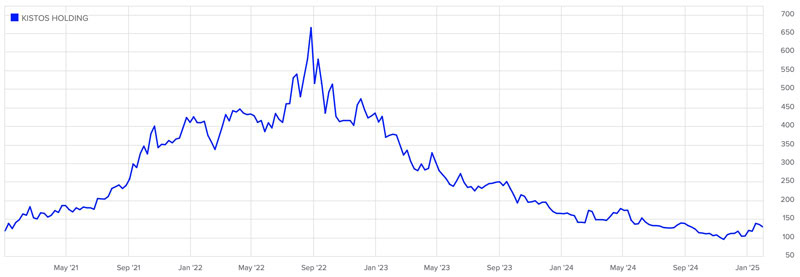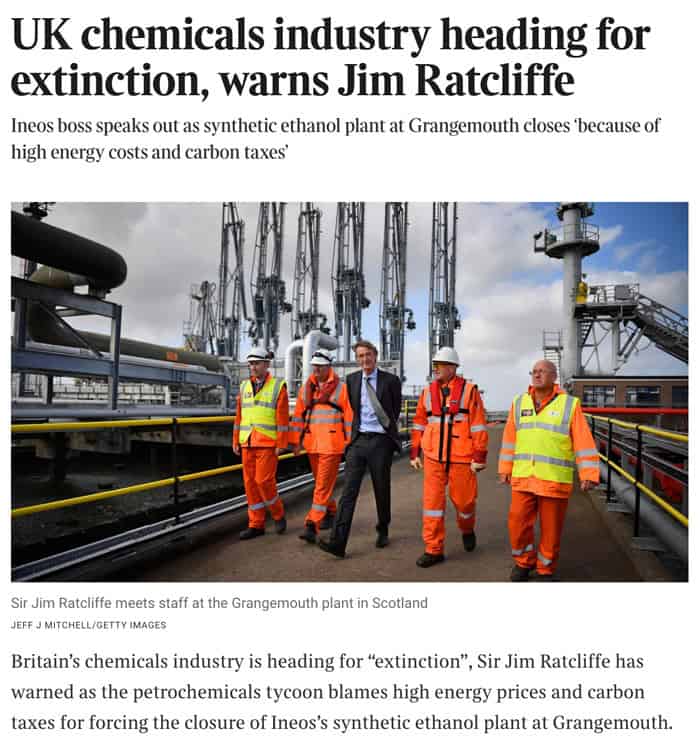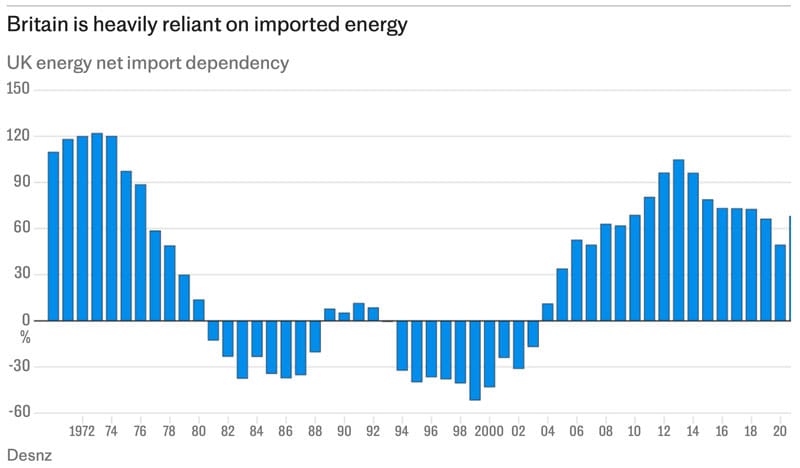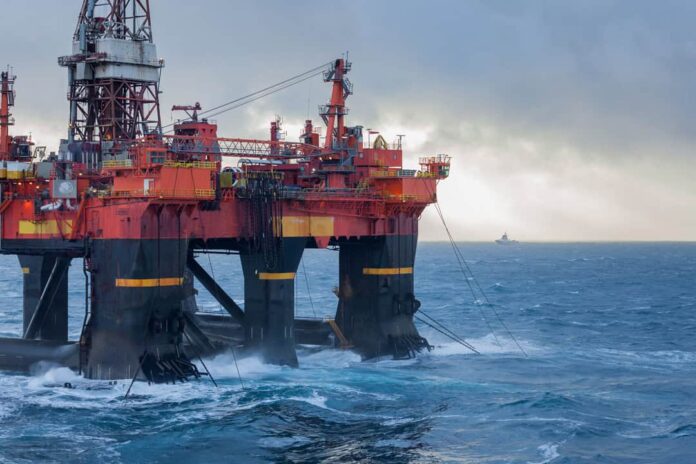Image by Arild Lilleboe / Shutterstock.com
Politics has seen some stunning reversals of late.
Americans gave Trump a landslide victory and strong mandate.
Germany’s candidate for Chancellor, Friedrich Merz, wants to close the border to illegal immigration as soon as he gets elected.
The UK’s Chancellor of the Exchequer, Rachel Reeves, has just thrown her weight behind a third runway at Heathrow airport.
These are extraordinary U-turns, which would have been unthinkable until recently.
Will something similar happen to North Sea oil?
A sector under siege
There are few other sectors that have had as unfavourable an outlook as North Sea oil producers.
Europe’s goal for “net zero” led to a negative attitude of the continent’s policymakers towards domestically produced oil. The sector was under pressure even before the pandemic. Oil majors were selling off North Sea oil projects at low single-digit valuation multiples because they considered it a run-off sector.
Along came the war in Ukraine and spiralling energy prices. The UK’s “conservative” government introduced windfall taxes on the profits of energy producers, further diminishing the sector’s attractiveness. An entire string of operators, including US energy giants Chevron and Apache, decided to quit the UK.
The government’s tough love approach put pressure on the share prices of domestic oil and gas companies. One such case is London-listed company Kistos Holdings (ISIN GB00BP7NQJ77, UK:KIST), which had been set up in 2020 to exploit unloved and undervalued oil projects in and around the North Sea.
Following a share placement at a price of 100 pence in December 2020, the share price initially went up more than 6x within less than two years. By August 2022, the stock was trading at 655 pence.
It’s now back down at 133 pence, and investor sentiment could hardly be worse. In a private chat group, one participant described Kistos Holdings’ chairman and major shareholder as “hated and so toxic“.

Kistos Holdings.
Well, despite his alleged toxicity, Andrew Austin is still producing a lot of the stuff that keeps the world going around. It’s one thing to virtue-signal about net zero and related subjects, and another thing altogether to run the operation that keeps homes warm and cars running.
Britain now has the highest energy prices of the Western world. Based on figures from September 2024, the cost of power for industrial businesses has jumped 124% since 2020, catapulting the country to the top of international league tables. Industry energy in Britain is now about 50% more expensive than in Germany and France, and 4x than in the US.
Earlier in January, Britain’s petrochemicals billionaire, Sir Jim Ratcliffe, warned that the country’s chemicals industry was having “the life squeezed out of it” by high energy costs.
Industry can sustain brief periods of high prices, but permanently high prices make companies take drastic actions. Since 2021, Britain’s chemicals sector has shrunk by 37%. In an industry that currently employs 600,000 people, such cuts mean hundreds of thousands of jobs gone.
What’s more, such cuts only mean that the production of these chemicals and products is moving to countries less hostile towards fossil fuel-based energy. Policy wonks call this phenomenon “carbon leakage”. Countries like China are having a right old laugh about it all, given that these policies make business come their way.

Source: The Times, 13 January 2025.
How long is this going to continue? Not much longer, I speculate.
New trends more often than not start in the US and then move westward from there. It’s now once again “drill, baby, drill” in the US, and energy autarky as well as low energy prices are high on the agenda of the new American administration. Trump knows that historically, a direct and strong link exists between low energy prices and a country’s affluence.
I suspect the winds of policy change will arrive in Europe before too long. If that were the case, I’d want to have bombed-out stocks of North Sea oil producers in my portfolio.
Kistos Holdings is a good example of what’s on offer.

Source: The Telegraph, 3 January 2025.
“Cash, baby, cash!”
A caveat first, I only had a cursory look at this company. In fact, I tested this thesis just last night at a dinner in Edinburgh. I figured my audience would be at least somewhat familiar with the subject, given Scotland’s long-standing involvement in North Sea oil. Interestingly, my thesis mostly drew sceptical faces, which only encouraged me further.

Yours truly speaking with readers in Edinburgh.
Kistos Holdings has some extraordinary valuation metrics, once you look at its ability to generate cash. As the November 2024 analyst presentation shows, the firm could generate USD 690m of cash between now and 2027. Even if you consider the company’s commitment towards capital expenditure, decommissioning expenditure, and tax liabilities, it will have USD 300m left over – 70% greater than the reported net debt on 30 June 2024.


